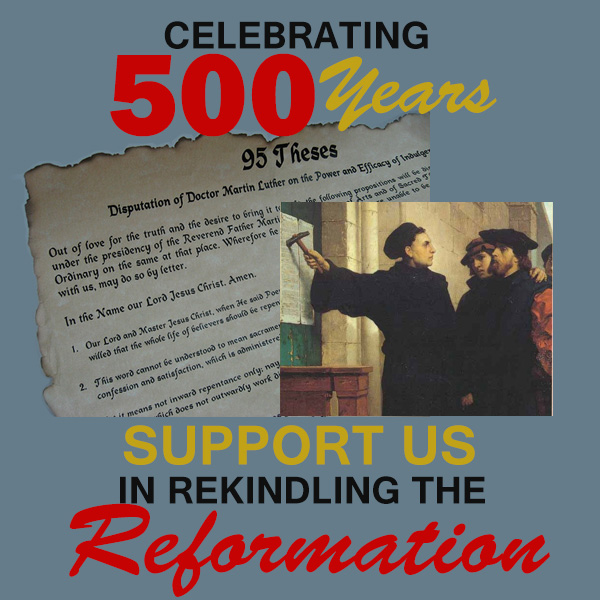Some time ago, when I was on a mission trip to my native country, Guyana, I encountered an experience that filled me with pity and sorrow. It was on a Sunday morning, my wife and I were at the local market getting our weekly supply of fresh fruits and vegetables. As we exited the market, we were bombarded with some very loud shouting, screeching and babbling. These rather unearthing noises were superseded by the voice of a woman who was shouting rather uncontrollably and proclaiming a litany of indiscernible utterances.
It turned out that these noises were coming from a church across the street from where we stood waiting for a taxicab. I remembered that my young nephew had told me earlier that very day that he was going to church in the vicinity of the market. Later in the day, when he returned home, I asked him the questions: “was that your church, and what was going on in there” He replied rather confidently that it was indeed his church and they were praising God by speaking in tongues. I then asked him again: “what was the lady saying”. With a blank, emotionless grin on his face, he replied, “I don’t know”. I continued my questioning: “Junior, how could you place yourself in such a place claiming to worship God not knowing what is being preached to you”. He had no answer for me. I then took the opportunity to share with him what I will now share with you about what the Bible says about speaking in tongues.
For most Christians, this concept of ‘speaking in tongues’ is derived from a misunderstanding of what took place on the day of Pentecost. This event is recorded in the second chapter in the book of Acts. Too many associate this misplaced theology with yet another perversion of God’s word, that of the false notion of ‘being filled with the spirit’.
The Scripture verse cited to support this twofold falsity is this: “ And they were all filled with the Holy Ghost, and began to speak in tongues as the Spirit gave them utterance” (Acts 2:4). For some unexplained reason, the proponents of this abominable theology, conveniently neglect the following verses: “And there were dwelling at Jerusalem Jews, devout men, out of every nation under heaven…Now when this was noised abroad, the multitude came together, and were confounded because that every man heard them speak in his own language” (Acts 2:5-6). The people were confounded, not confused. The languages spoken were discernible. The hearers were simply amazed by at what was happening. The Gospel was proclaimed to all present and it was clearly understood by each in his/her own language.
What happened on the Day of Pentecost, as is presented in the second chapter of book of Acts, was the fulfillment of the Jewish feast day recorded in the twenty-third chapter of Leviticus, verses 15-22. It prefigured and was practiced by the Jewish nation for almost 2,000 years prior. Now, type had met anti-type. The Holy Spirit was poured out in copious measures upon the early church. Just as was prophesied in the types and symbols, Pentecost took place fifty days after the crucifixion of Jesus Christ. In ancient Israel, this day signified a time of spiritual renewal of the people. That’s precisely what occurred in Acts chapter two. The early church was empowered with and by the Holy Spirit to preach the Gospel to the then known world. The converted Jews went back to their various countries carrying with them the good news of a crucified and risen Savior. It was the greatest Pentecost the nation had ever experienced. They were indeed spiritually renewed.
A careful reading of the rest of this chapter tells us truly what happened on the Day of Pentecost. Traditionally, this was a time when the Jews gathered at Jerusalem to experience a spiritual renewal as they reflected upon and celebrated their deliverance from Egyptian bondage. In Acts, chapter 2, we witness nothing less than an excited celebration of a people who recognized and accepted Jesus Christ as their Messiah and Deliverer from the bondage of sin. On this occasion, God in His divine providence, chose to reveal the truth of His Only Begotten Son to the Jewish nation. This Divine demonstration of ‘speaking in tongues’ was for the sole purpose of enabling the many visitors to Jerusalem to take the Good News back to their respective countries. Thereafter, even unto this day, that Good News is being proclaimed to the farthermost parts of the world.
The Bible records what is the purpose of the Holy Spirit. The apostle John tells us plainly, “And when He (The Holy Spirit) is come, He will reprove the world of sin and of righteousness, and of Judgment…Howbeit, when He, the Spirit of Truth, is come, He will guide you into all truth: for He shall not speak of Himself; but whatsoever He shall hear, that shall He speak: and He will shew you things to come” (John 16:8,13).
What I encountered that Sunday morning in Guyana, also what so much of professed Christendom is enamored with and beguiled by, is not the ‘filling of the Holy Spirit’ nor the Biblical concept of ‘speaking in tongues’. The Holy Spirit does not manifest itself in that way. Nowhere in the Scriptures do we see the prophets, Jesus nor the disciples, all of whom were filled with God’s Holy Spirit, behave in such a manner.
The Holy Spirit has been and continues to be given to God’ people to proclaim His truth. Indiscernible babbling and the accompanying uncontrollable physical manifestations are not the workings of the Holy Spirit. He simply does not operate that way. He works in our lives to transform our characters and to prepare us for our soon coming Savior. The apostle Paul reminds us, “But we all, with open face beholding as in a glass the glory of the Lord, are changed into the same image from glory to glory, even as by the Spirit of the Lord” (2 Corinthians 3:18).
The book of Acts, which can more truly be called ‘The Acts of The Holy Spirit’, is true to the rest of Scripture. Following the events recorded in chapter two, we witness the miraculous spreading of the Good News of a crucified and risen Savior to the then known world. God, in a rather supernatural way, allowed for the Gospel to be preached, heard and learned in the many languages spoken by the many Jews who were visiting Jerusalem for the observance of their customary feast day called Pentecost. They came for a celebration; but they got a Divine Revelation of their Lord and Savior, Jesus Christ.
The popular, erroneous twin doctrine of ‘speaking in tongues’ and ‘being filled with the Holy Spirit’ are not found in the Bible. These are doctrines of devils that do not convict the sinner of his sinful condition, the purpose for which the Holy Spirit is given. They do not call us to righteousness. Neither do they point God’s people to the coming day of judgment. Those perverted doctrines certainly do not guide the child of God into any truth. They are Babylonian and therefore confusion. Our God is not the author of confusion. He is a God of peace and order. Popular as these teachings may be, they are nevertheless false and certainly do not aid in the sanctification of the soul. They are the wines of Babylon concocted and promulgated by men inspired and controlled by the destroyer of our souls.
Our loving, merciful and compassionate God has a solemn warning for those who partake of such false concepts. He pleads through His servant John, “Come out of her (Babylon) my people, that ye be not partakers of her sins, and that ye receive not of her plagues” (Revelation 18:4).
Question is, will you heed His call?
The Apostle Paul’s view on the matter.
The Apostle Paul discusses the matter of spiritual gifts, including ‘speaking in tongues’, in the book of 1st Corinthians. In Chapter 12, he outlines the many spiritual gifts God has given to His church. He teaches us that all the gifts are given by the same Spirit, God’s Holy Spirit. Paul then compares the church to the human body and likens the gifts to the different parts of the body. The conclusion he finally draws is that as different parts of the body have different functions; even so each member of the church has been given different gifts for the smooth working of the church and for the effective proclamation of the Gospel.
With that understanding of what are spiritual gifts are, it is clear to see that the popular, erroneous doctrine of ‘Speaking in Tongues’ is not the evidence of having God’s Holy Spirit in a believer’s life. By the adoption of this false doctrine many are deceived. They proceed to work themselves into an ecstatic, emotional experience which manifests itself in uncontrollable bodily gyrations and unintelligible verbal utterances. It is madness which the Bible does not teach. Further, the proponents of this unbiblical teaching claims that unless one have these experiences, the Holy Spirit is not present in their lives. This is a doctrine of the great deceiver. It indeed claims a spirit; but certainly not God’s Holy Spirit.
The gross misunderstanding of Paul’s writings, in this regard, leads many to misinterpret the Scripture and misrepresent God. The apostle Peter counsels us about Paul’s writings: “As also in all his (Paul) epistles, speaking in them of these things; in which are some things hard to be understood, which they that are unlearned and unstable wrest, as they do also the other scriptures, unto their own destruction” (2 Peter 3:16)
In order to properly understand Paul’s discourse on ‘Speaking in Tongues’, in the 14th chapter of the 1st epistle to the Corinthians, it would be helpful to give a little background on the city of Corinth and the church to which the apostle was writing. Corinth was a seaport city located on the northeastern coast of Greek mainland. Its location allowed for easy access to the Aegean sea which connected all the major cities of Asia Minor. Corinth was a crossroads city with a cosmopolitan population. It was the gateway to Europe and Asia Minor. It was a natural center for trade and commerce. People came from throughout the Greco/Roman Empire and brought with them their various languages, dialects and pagan religious practices.
Paul, on his second missionary journey from Jerusalem, had preached the Gospel in Corinth. As a result, many people accepted the message of salvation of a crucified and risen Savior. A church was subsequently established. Many of the believers came from their varying pagan religious practices to accept Jesus as their Lord and Savior from sin. The church that Paul had established in this city was later visited and/or pastored by Timothy, Apollos and Peter. Each had shared their understanding of the Gospel with the church at Corinth. But some of the pagan practices of the new believers also entered into the church. This news, having reached Paul, who was now at Ephesus, writes a letter of correction and consolation to the congregation at Corinth.
It is with this background in mind that we can intelligently discuss what Paul teaches about ‘Speaking in Tongues’. In the 2nd verse of 1 Corinthians, the 14th chapter, Paul writes, “For he that speaketh in an unknown tongue speaketh not unto men, but unto God: for no man understandeth him, howbeit in the spirit he speaketh mysteries” (1 Corinthians 14:2)
The simple and obvious meaning of what Paul is saying is that if someone is speaking in his own language, which only he understands, it is a matter between him and God. He continues in verse 4-5, “He that speaketh in an unknown tongue edifeth himself; but he that prophesieth edifieth the church. I would that ye all spake with tongues, but rather that ye prophesied: for greater is he that prophesieth than he that speaketh in tongues, except he interpret, that the church may receive edifying” (1 Corinthians 14:4,5). Paul elaborates, “If any man speak in an unknown tongue, let it be by two, or at the most, by three, and that by course; and let one interpret. But if there be no interpreter, let him keep silence in the church; and let him speak to himself, and to God ” (1 Corinthians 14:27-28).
Clearly, Paul is addressing the issue of the varying members of the church speaking in their many languages all at the same time. This practice was naturally causing great confusion in the church. The members were not growing in their relationship with Christ simply because there was no common language among the people. Paul’s solution to the problem was that the speaker also interpret or had an interpreter present so that all may understand what he was saying and be edified thereby.
Paul, who was a linguist (Had the ability to speak several languages), tells the church that when he speaks, he does so in a language that all may understand. He states, “I thank my God, I speak with tongues more than ye all. Yet in the church I had rather speak five words with my understanding, that by my voice I might teach others also, than ten thousand words in an unknown tongue” (1 Corinthians 14:18-19).
All spiritual gifts, including ‘Speaking in Tongues’ are given for the edifying of the body of Christ and for the proclamation of the Gospel in clear, distinct terms. Unintelligible utterances do not accomplish either of these tasks. Furthermore, God does not need for us to speak to Him in some confusing babble so that He may hear us. The Scripture is clear: He knows our hearts even before we speak. The notion that there is some spiritual language with which we need to speak to God and which no one else can understand is not Biblical. Paul does not teach nor endorse such a doctrine.
Speaking in Tongues, the ability to communicate in more than one language is undeniably a gift from God. In the context of God’s Divine Plan of Redemption, this gift is to be used for edifying and saving souls. When it is used, either the speaker or someone else in the congregation must be able to interpret so that the rest of the congregation will be blessed and that souls may be drawn to Jesus Christ, the Giver of all good gifts. Unintelligible utterances, confusing babbling and uncontrollable bodily gyrations are neither good gifts nor do they come from God. They are not a manifestation of His Holy Spirit; but rather, the demonstration of another spirit.
Paul concludes, “For God is not the author of confusion, but of peace, as in all churches of the saints. Let all things be done decently and in order” (1 Corinthians 14:33,40). The next time you encounter what is popularly known as ‘Speaking in Tongues’; ask yourself this question: Is this confusing or decent and in order? Your own personal answer might very well give you the true Biblical teaching on ‘Speaking in Tongues and being filled with God’s Holy Spirit’.
Always remember that the Bible and the Bible only should be your only rule of faith and practice. Jesus is your only True Example. The Bible does not teach confusion nor did Jesus practice confusion or indecency. The popular, false doctrine of ‘Speaking in Tongues with its accompanying sidekick, ‘Being filled with the spirit’ are both confusing and indecent. They, along with so many others which do not conform to the plain, simple truths of the Bible, must be rejected.










Leave A Comment